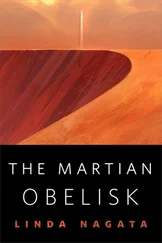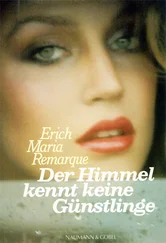I push the poems aside. They suddenly seem to me flat and childish, typical of the attempts almost every young man makes at one time or another. I began to write during the war, but then it made some sense—for minutes at a time it took me away from what I was seeing. It was like a little hut of protest and of belief that something else existed beyond destruction and death. But that was a long time ago; today I know that there exists a great deal more besides and I even know that both can exist simultaneously. I no longer need my poems for that; in the books on my shelf it has all been said much better and more convincingly. But what would become of us if that were a reason for giving something up? Where should we all be? So I go on writing, though what I write often seems gray and wooden in comparison with the evening sky which is now growing spacious and apple green above the roofs while twilight fills the streets with a drift of violet-colored ashes.
I go downstairs, past the darkened office and into the garden. The Knopfs’ door is open, and inside the three daughters of the family sit around the lamp as though in a fiery cage, busy at their sewing machines. The machines whir. I glance at the window next to the office. It is dark; so Georg has already disappeared somewhere. Heinrich, too, has gone to the reassuring haven of his customary restaurant. I take a turn around the garden. Someone has been sprinkling it; the earth is damp and smells very strong. Wilke’s coffin shop is empty, and there is no sound from Kurt Bach. His windows are open; a half-finished, mourning lion cowers on the floor as though it had a toothache, and beside it stand peacefully two empty beer bottles.
Suddenly a bird begins to sing. It is a thrush perched on top of the memorial cross that Heinrich Kroll has bartered away. Its voice is much too big for that little black ball with its yellow beak. It rejoices and mourns and moves my heart. For a moment I reflect that its song, which for me means life and future and dreams and everything undefined, strange, and new, no doubt means to the worms that are working their way up through the damp garden soil around the monument nothing but the dreadful signal of lacerating death from a murderous beak. Nevertheless, I cannot help myself; it carries me away, releasing everything within me; all at once I stand there helpless and lost, amazed that I am not torn apart or that I do not rise like a balloon into the evening sky—until finally I pull myself together and stumble back through the garden and the nocturnal fragrance, up the stairs to my piano, where I pound and caress the keys, trying to be something like the thrush and to pour out what I feel. But nothing much comes of it and in the end it is only a flood of arpeggios and shreds of sentimental ditties and folk songs and bits from the Rosenkavalier and Tristan , a hopeless medley till finally someone on the street shouts up: “Hey, you, why don’t you learn to play?”
I stop abruptly and steal to the window. A dark figure is disappearing into the night; it is already too far away to bit. And why, after all? He is right. I cannot really play. Either at the piano or at life; never, never have I been able to. I have always been too hasty, too impatient; something always intervenes and breaks it up. But who really knows how to play, and if he does know, what good is it to him? Is the great dark less dark for that, are the unanswerable questions less inscrutable, does the pain of despair at eternal inadequacy burn less fiercely, and can life ever be explained and seized and ridden like a tamed horse or is it always a mighty sail that carries us in the storm and, when we try to seize it, sweeps us into the deep? Sometimes there is a hole in me that seems to extend to the center of the earth. What could fill it? Yearning? Despair? Happiness? What happiness? Fatigue? Resignation? Death? What am I alive for? Yes, for what am I alive?
It is Sunday morning. Bells are ringing from all the steeples, and last night’s will-o’-the-wisps have vanished. The dollar still stands at thirty-six thousand, time holds its breath, the crystal of the sky is as yet unmelted by the warmth of day, everything is clear and infinitely clean—it is the morning hour when even the murderer is forgiven and good and evil are empty words.
I dress slowly. Cool, sunny air sweeps through the open window. Like distant sawing, the snores of Sergeant Major Knopf reach me from next door. There is the steely flash of swallows darting through the arch. Like the office below it, my room has two windows—one opening on the courtyard, the other on the street. For a moment I lean against the rear window and look into the garden. Suddenly a dreadful scream breaks the stillness and is followed by gasping and groaning. It is Heinrich Kroll, who sleeps in the other wing. He is having his nightmare again. In 1918 he was buried by an explosion, and now, five years later, he still occasionally dreams about it.
I make coffee on my alcohol stove and pour a little kirsch into it. That’s something I learned in France, and despite the inflation I always manage to have schnaps. My salary is never enough for a new suit—I simply can’t save up the money for that, it loses its value too fast—but it takes care of the small items and, of course, a bottle of brandy now and then for comfort.
I have margarine and plum preserve with my bread. The preserve is good; it comes from Mother Kroll’s larder. The margarine is rancid, but that doesn’t matter; during the war we all ate much worse. I survey my wardrobe. I have two uniforms remodeled into suits. One has been dyed blue, the other black—there wasn’t much else to do with the gray-green material. Besides that I still have a suit from the time before I was a soldier. I have outgrown it a little, but it is a genuine civilian garment, not remodeled or adapted, and so I put it on. It goes with the tie that I bought yesterday afternoon, and that I am going to wear today so that Isabelle will see it.
I walk contentedly through the streets of the city. Werdenbrück is an ancient town of sixty thousand, with wooden buildings and baroque structures interspersed with dreadful new developments. I cross it and go out along an avenue lined with horse chestnuts, then up a little hill to the big park where the insane asylum stands. There it is, in Sabbath peace, with birds twittering in the trees. I go there to play the organ at Sunday mass in the little church attached to the institution. I learned to play it when I was studying to be a teacher, and a year ago I snapped up the post here as a secondary job. I have a number of them. Once a week I give piano lessons to the rowdy children of Karl Brill, the shoe-maker, and in return get my boots resoled and a little money—and twice a week I tutor the idiot son of Bauer, the book-seller, and as a reward I am allowed to read all the new books and am given a discount when I want to make a purchase. Naturally this discount is exploited by the entire membership of the Poets’ Club, even by the shameless Eduard Knobloch, who on these occasions suddenly becomes my friend.
The mass begins at nine o’clock. I sit down at the organ and watch the last inmates coming in. They move forward silently and take their places in the pews. A few attendants and nurses sit between them and on the sides. Everything is done softly, much more silently than in the country churches where I played when I was a schoolmaster. There is no sound except the scuffling of shoes on the stone floor; they scuffle, they do not tramp. These are the footsteps of people whose thoughts are far away.
In front of the altar the candles have been lit. The radiance from outside falls through the stained-glass window, mixing with the candle glow in a soft red and blue, transfused with gold. In this glow stands the priest in his brocaded vestments, and on the steps of the altar his assistants kneel in their red gowns and white tunics.
Читать дальше








